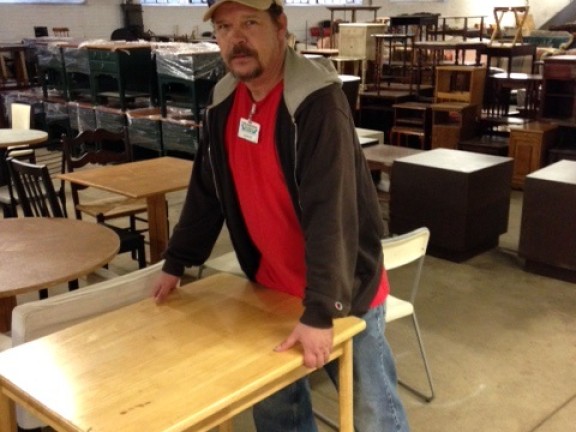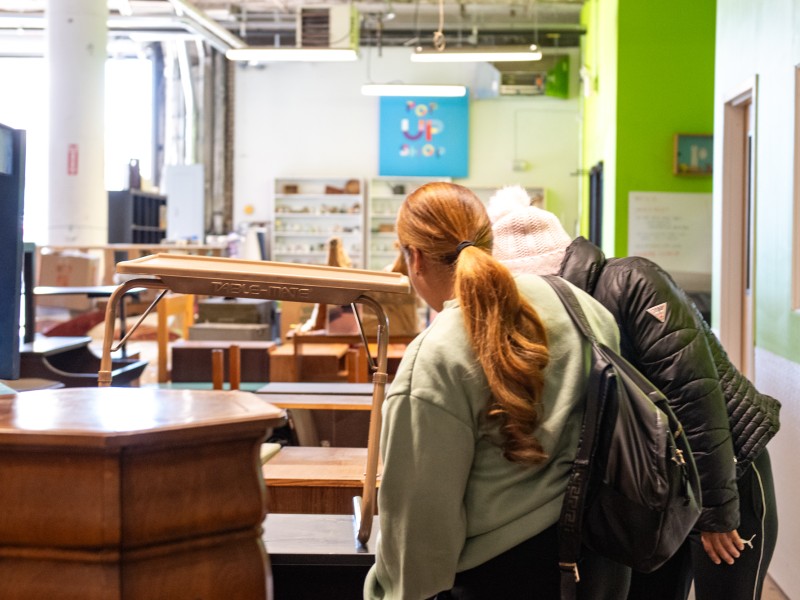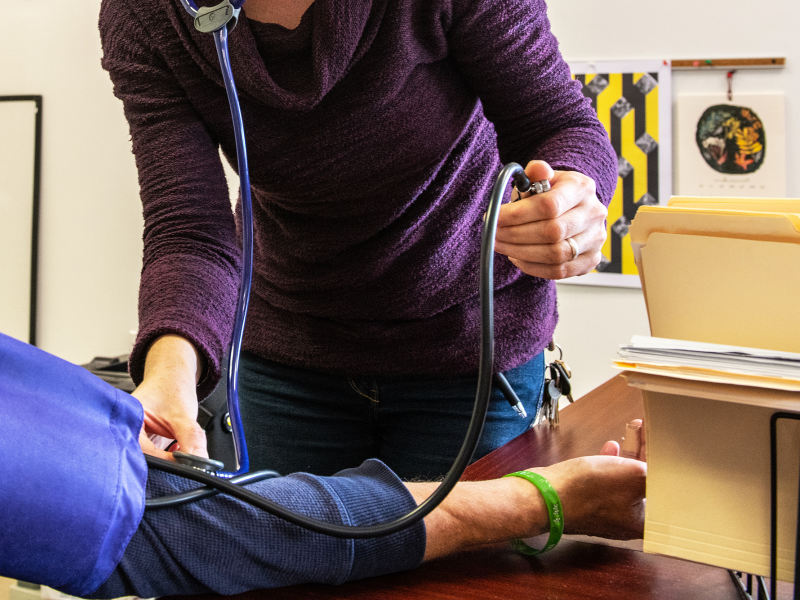Dave Talks about His Experience with Homelessness

Dave is a member of the Pathways' community. He now works part-time at the Philadelphia Furniture Bank (PFB) as part of Pathways' Transitional Supported Employment Program. He agreed to talk to Howard Pinder, PFB's Assistant Director, about his experiences. We believe that our stories are as important as our successes.
Q: What is the story that connected you with Pathways?
I was a business man for 30 years. The stock market crashed in 2007-2008, and I became homeless. I lost my house. I lost my car. I lost my bank account. I always had a mental illness, but I never understood it because I always fit in to society. My mental illness is Chronic Paranoid Schizophrenia. Today I am on medication that controls my thinking and helps me to understand society so that I fit in with regular people. When I became homeless, I became an alcoholic and drug addict. Today, I am not.
Q: Tell us a little about yourself and how you became connected with Pathways.
I became connected with Pathways to Housing PA from being chronically homeless and having a serious mental illness. They got my out of the mental hospital and said that they had an apartment for me. With my disease, chronic paranoid schizophrenia, I didn’t believe that. But they showed me a couple of apartments and I agreed to one, and then they gave me the keys. They even put food in my refrigerator. I didn’t sleep in my own home consistently for about 6 months. It took a whole year for me to sleep in my own bed.
Q: Why so long?
It was very scary to me. You know, when your outside on the pavement for that long, it’s a break from society. You’re coming in off the streets - in to a place that someone gave you - and that you’re still fantasizing about it not being real, so you just don’t believe it. So, it took me a long time to sleep in that bed. But now I’m comfortable and I’ve been with the program at Pathways to Housing for a long time now. I’ve been looking for work and Pathways to Housing PA just opened the Philadelphia Furniture Bank.
Q: How has your experience with the furniture bank been?
The experience with the furniture bank is very helpful for me. I’m communicating more with people. I am educating myself about being back in the workforce. At the same time, I am learning different skills like being on time and not taking days off. I am back in the society of going to work like everybody else. 9-00am-5:00pm, Monday-Friday, or whatever it is, Thursday-Monday, or working the weekends. I am learning a lot about the furniture bank and ways of communicating with other people and dealing with my own mental illness.
Q: What is your favorite part about being at the furniture bank?
I like waking up early in the morning, coming to work, taking the train, and working with the public. Even though it’s a secret society. Not really secret, but we have a code, you know? Because the people that come in are like me or a little bit like me - they have problems too - and it’s all kept confidential. So I like coming to work every day, being on time, and talking to Howard and Tom. Talking to my coworkers; I enjoy that. It helps me out with my mental illness. I’m looking forward to full-time work one day, getting back into society, and pay taxes like everyone, even though I’m paying taxes today. And at the same time, I want full-time work.
Q: Can you explain a little bit of what it was like out on the streets?
It’s very hard on the streets. It’s very scary when you haven’t paid rent or the mortgage for many years. It’s not a thing that you wake up and say to your mom and dad or brother and sister, “I’m going to be homeless.” No, you’re not going to do that. It’s just that society kicks that bucket from you and it isn’t just society, but whatever happens, happens.
Living on the streets is very scary. You got to keep one eye open, people rob you left and right. The alcohol and drugs are floating out there. It’s very nasty. Diseases are out there. I never slept in the shelter system. Once in a while I would go in. I would take a shower at 802 N. Broad St. or different places like 8th and Arch., but I always had a camp site. I was scared. That was my disease, paranoid schizophrenia. I slept outside in a tarp or tent and then I would come in the city and sleep inside a building and close up my wrap and hide it. But I would never sleep inside. I was scared of people. It was very tough for me. I have what’s called an Axis 1 mental illness. I never knew what that was. But I guess that’s the number 1, top disease of mental illness. And it was very scary out there, you drink a lot. I really didn’t do too many drugs but I didn’t take medication because I didn’t know I had the mental illness. The only time I would get medication was when I would go to jail and they would throw me in the mental hospital. I was in the mental at least a dozen times during my homelessness. They would pick me up and say: “Son, you’re going to Presbyterian or University of Penn or Belmont.” And every time they would say: “Get on your medication.” The last time I got in trouble with the law, and that’s when I started getting on medication and I started taking it regularly. I relapsed on my medication and that’s why I’m in trouble today. I’m on probation because I was off my medication. Today I am on my medication, I see a psychiatrist regularly.
I just graduated from my therapist and she said “you’re doing well, you’re okay, and you don’t need to see me anymore.” I don’t know if that’s what she believed, or that’s because the insurance ran out. See, that’s another thing about being homeless, when you’re insurance runs out, they kick you to the curb. Even though they have welfare up there, or whatever medical, sometimes some of the medical services don’t help you. Especially when you have dental problems. The only thing you can do is go into an emergency room, they can hook you up with Percocet’s or some antibiotics and say: “See ya later” because you need some top insurance to get dental problems taken care of. And when you’re out on the streets too, with your medical issues, you never go to a doctor- you only go to the emergency room. Maybe because you’re hurting in your back from sleeping on the cold pavement or you just want to get out of the cold.
Homelessness is very scary and today there are a lot of people that are homeless and there are a lot of children that are homeless that should not be homeless. Our society should transfer, transport or whatever and help poor people out and they shouldn’t be homeless. So, Pathways to Housing is a blessing to the city of Philadelphia.


